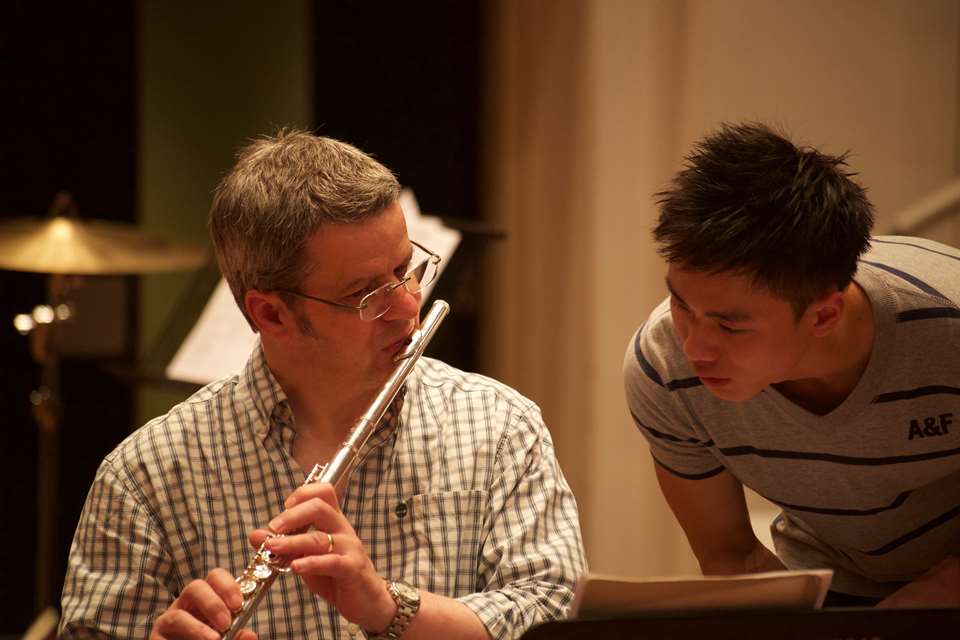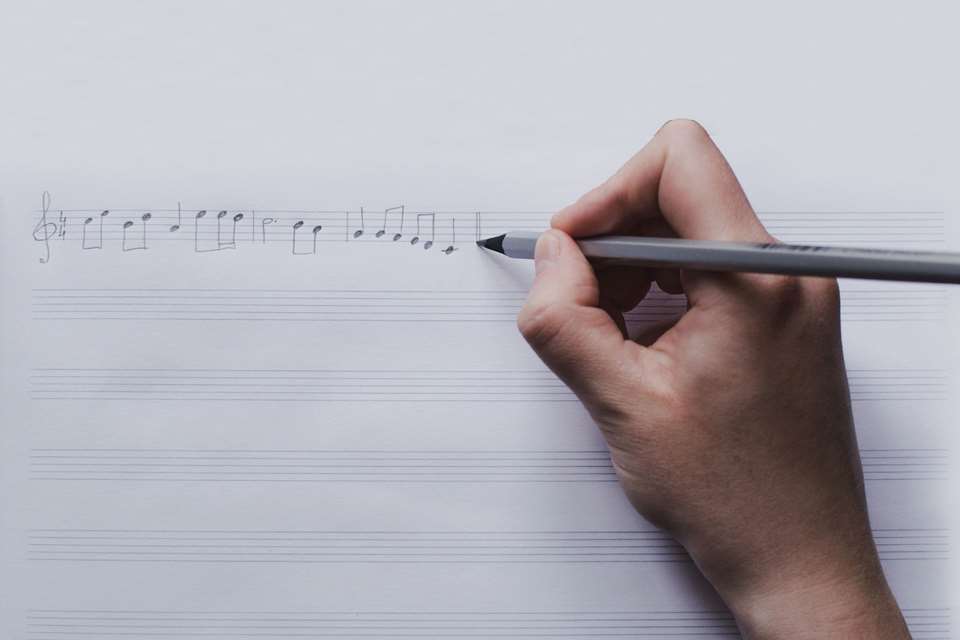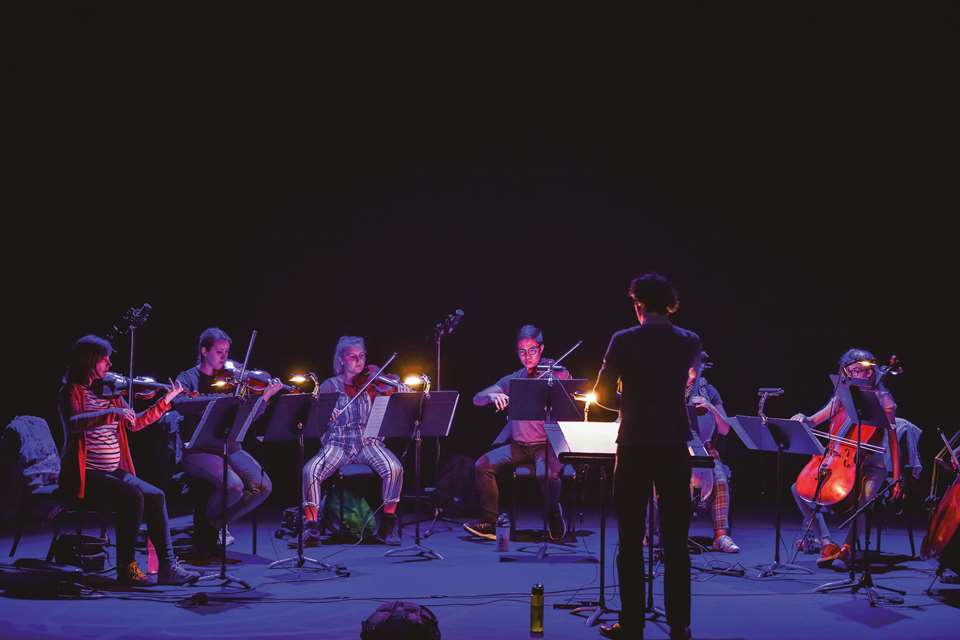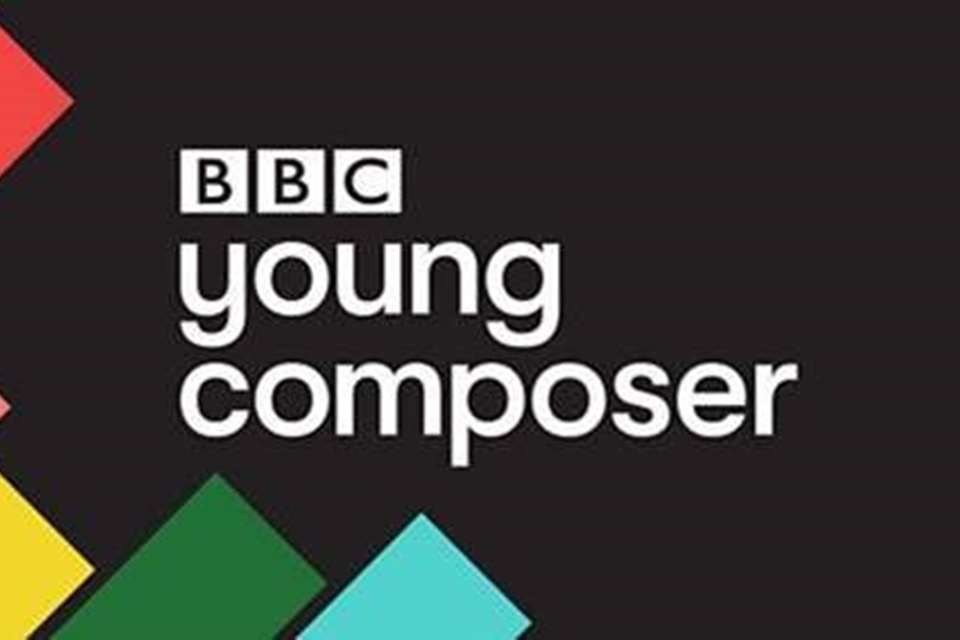Psappha at 30: Very Young Composers Scheme
Freya Parr
Monday, August 1, 2022
The New York Philharmonic's Very Young Composers Scheme has come to primary schools in Merseyside, led by the Manchester-based Psappha Ensemble. In the group's 30th year, Freya Parr meets Psappha's outgoing artistic director Tim Williams to find out more.
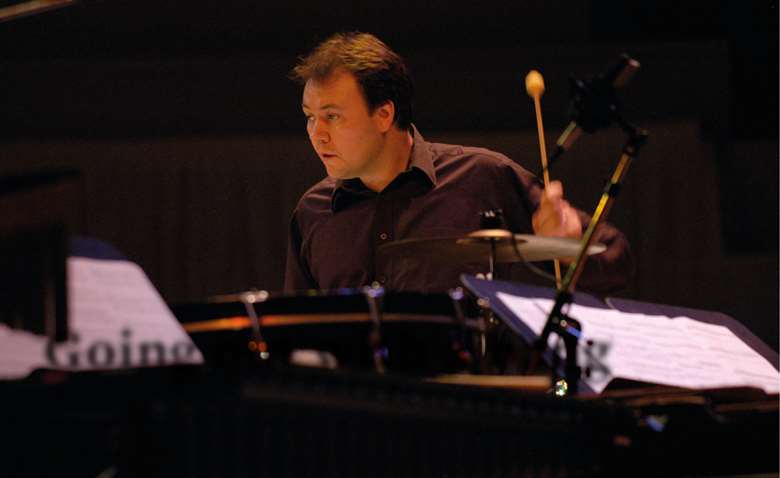
With wages stagnating and gas prices skyrocketing, families across the country are being forced to choose between eating and heating. Music lessons, Tim Williams argues, are the last thing parents can think about. ‘Our aim is to try and reach those kids,’ he explains. Having founded the Manchester-based Psappha Ensemble 30 years ago, Williams is finally handing over the reins as artistic director to the ensemble's pianist Benjamin Powell – but not without a final flourish. His swansong is the launch of the Very Young Composers Scheme, an initiative first developed by the New York Philharmonic 25 years ago and which has now been rolled out as a 12-week pilot scheme across primary schools in Merseyside, with Psappha at the helm. Over the course of the programme, children with no musical training living in areas of deprivation can transform their musical ideas into finished compositions.
Psappha is the perfect ensemble to launch the first UK offering of this scheme, as new writing has always been a focus for Williams and his team. In fact, Williams's experience of music at his comprehensive secondary school in a Liverpool suburb has played a big part in shaping the musician and artistic director he is today. ‘My secondary school wasn't very good, but the music teacher was fantastic,’ he says. ‘He wrote a xylophone concerto for me when I was 15. People need to be shown that it is possible for them to make music.’
Reaching the grassroots
Since its inception, Psappha has been committed to nurturing the work of emerging musicians and living composers, commissioning 500 new works and premiering more chamber music than any other independent ensemble in the country. A collection of seven commissions was released on a 30th anniversary disc by NMC, featuring new works by composers including Mark-Anthony Turnage, John Casken, Tom Coult and Alissa Firsova. This year also saw the premiere performance of Pay the Piper at Glyndebourne. A new reimagining of the Pied Piper of Hamelin, the youth opera was written by a clutch of rising female composers, including three graduates of Psappha's ‘Composing For…’ scheme, with Psappha joining a chorus of 70 young people and three professional singers.
But because the new composers Psappha has previously reached tend to be 18+, Williams thinks there has been something missing. ‘For many years, I've been trying to diversify the people coming into our composing schemes. We were getting to people too late,’ he explains. ‘As the years have gone by, music has become a profession for people who can afford to have music lessons. We needed to get to the grassroots in order to change this.’
Tried and tested method
A collaboration with the New York Philharmonic's Very Young Composer Scheme meant that Psappha could help nurture the creativity of even younger musical voices. A tried and tested method, the Very Young Composers Scheme was first launched by the New York Philharmonic 25 years ago and has since been taken up in Finland, Hong Kong, South Korea and China. In fact, it's been so successful that it's now part of the Finnish National Curriculum. ‘Neither the kids nor the teachers need any musical training to take part,’ Williams says.
The UK's pilot scheme involves weekly workshops held at 4pm for 10–12 students each. Teaching artists come into the schools and deliver free after-school sessions, which introduce the children to different instruments and enable them to make decisions about the music and sounds they want to be created and played. The first couple of sessions see the children experimenting with sounds and textures using the Chrome Music Lab app. ‘All schools have iPads, so the children are able to create music which can then be played back to them by professional musicians,’ says Williams. The sessions all give children the freedom to explore.
‘It's a safe space to learn, where everyone's ideas are respected and there are no wrong answers,’ says Joanne Boulton, a teacher and music lead at Bedford Primary, one of the participating schools. Notation-based software like Sibelius can be intimidating for children with no formal music education, so apps like this are much more accessible. ‘Kids can simply use their fingers to experiment with sound and rhythm. Once they've edited and amended their piece and are happy with it, our teaching artists can notate it for them.’ Their creations are then performed back to them by leading musicians. At the end of the project, performances of all the pieces will be given for audiences of parents and teachers, before being filmed and exchanged with Very Young Composers in the US as part of a ‘Musical Postcards’ collaboration.
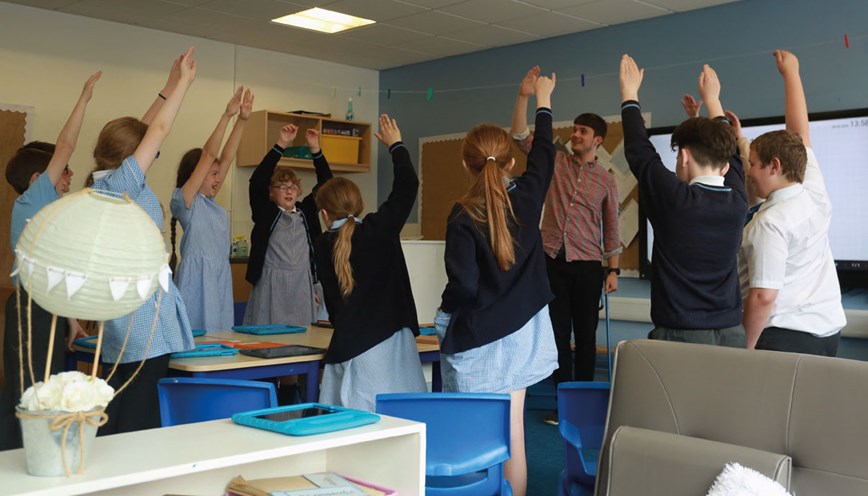
Very Young Composers © TIM WILLIAMS
More relatable
A key feature of the Very Young Composers Scheme is that it is built and designed for schools that aren't music specialists. This was a crucial focus for Williams and builds on the success of the ensemble's existing ‘Psappha Kids’ project, which provides schools with online resources to help teach music to Key Stage 2 students. ‘My experience of primary schools is that there are very few that would be considered music specialism schools, so it's really difficult for them to teach music as part of the curriculum and have the confidence to do so,’ he says.
It's not just the children who are benefiting from this scheme. The teaching artists delivering the sessions are able to chat to mentors from the New York Philharmonic to develop their practice, both as artists and educators. ‘Our teaching artists are all emerging musicians and composers between the ages of 20 and 30,’ explains Williams. ‘They received some initial training from the New York Philharmonic on the scheme's ethos and how to best deliver it, and they also have weekly check-ins throughout the programme.’
For many of the children taking part in the pilot, this is the first time they will have heard any kind of music being performed live, let alone their own compositions. ‘Watching the looks on their faces as they heard a cello being played for the first time was so emotional,’ says Boulton from Bedford Primary School. ‘When one of the pupils heard their piece being played by the cellist, they said, “You played that beautifully. I am a composer!”.’
How have the teachers found the process? While some teachers are music specialists already, others – like Elizabeth Gattrell from Holy Spirit Catholic Primary School in St Helens – are seeing this kind of music-making for the first time. ‘My school uses the Charanga scheme for teaching music, but this has felt much more relatable for the children,’ she says. ‘I would have never known about the methods and strategies that the composers use each week.’
The pilot might have ended in July, but for the schools involved, this is just the beginning. ‘I've already used some of the composing ideas with my Year 4 class and plan to disseminate the ideas I've learnt across the entire school,’ says Boulton. The children have something concrete that they themselves have created: a new composition. ‘Each child was given a notebook to record their inspirations and make important reference notes, so they always have something to refer back to,’ Gattrell explains. The impact of the project has been felt beyond the walls of her music classroom too. ‘The children I put forward for the project have a variety of additional needs, and everyone has seen such an improvement in their behaviour at school.’
Joining up the dots
Williams might be handing over the Psappha baton, but he still has big plans for the next steps of the project. ‘There are so many hit-and-run projects where you leave and wonder what happens next,’ he says. Psappha wants to join up the dots, making sure people of all ages have access to music-making. ‘After the pilot evaluation, we'll try and unlock some money to roll the scheme out to more schools. We already have music college covered, because we commission so many works from new composers, but I'd like to bridge that gap from primary school to sixth form. The oldest composer we've worked with is Betsy Jolas, who is 95. My aim would be to work with people from 9 to 95.’
With hundreds of new works composed, dozens of emerging artists and writers’ careers nurtured, and a new generation of very young composers given the opportunity to discover music-making, Psappha has made an indelible mark on the contemporary classical music landscape over the last 30 years. We have Williams to thank for that.


